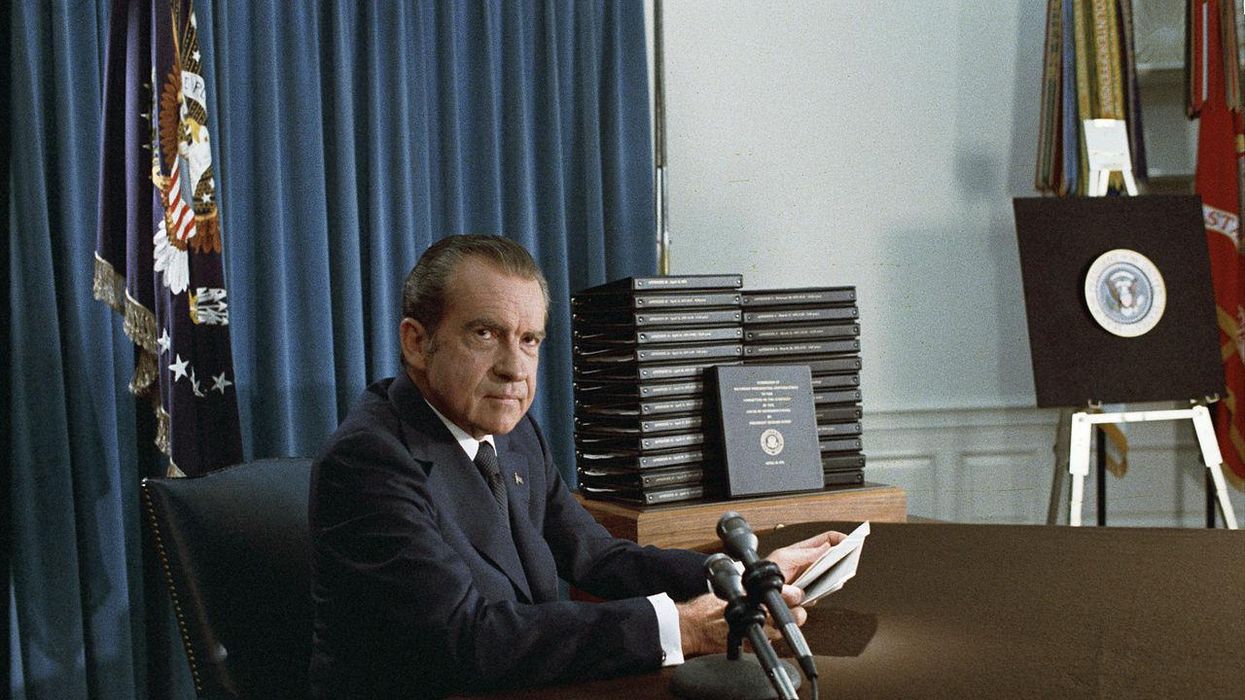Why Watergate still hasn’t lost its powerful grip on the American psyche — even after 50 years


As the January 6 hearings move along, House Speaker Nancy Pelosi’s select committee continues to present a mountain of damning evidence showing how treacherous former President Donald Trump and his allies were in the weeks after the 2020 presidential election — treachery that made President Richard Nixon and the Watergate scandal of the 1970s pale in comparison. Major Watergate-era figures such as Watergate prosecutor Jill Wine-Banks and journalist Carl Bernstein haven’t been shy about explaining why they consider Trump’s treachery so much more dangerous than Nixon and Watergate, which is saying a lot because Watergate, during the 1970s, was downright shocking to millions of Americans.
The January 6 hearings come on the 50th anniversary of Watergate. It was half a century ago, on June 17, 1972, that Democratic National Committee (DNC) headquarters in Washington, D.C.’s Watergate Office Building became the target of a break-in — eventually leading to Nixon’s resignation in August 1974.
Journalist/author David Greenberg, in an essay published by Politico on June 19, lays out some reasons why Watergate, after 50 years, has maintained such a grip on the American psyche. And he stresses that other American scandals of the past haven’t had that type of long-lasting impact.
“As we commemorate, on its 50th anniversary, the Watergate crisis that brought down Richard Nixon’s presidency, it is worth remarking on the extraordinary fact that we’re still commemorating it at all,” Greenberg explains. “Presidential scandals, after all, don’t age well. Few people can tell you much, if anything, about the Whiskey Ring that tarred Ulysses Grant’s presidency, the corruption flaps that rocked Harry Truman’s and Dwight Eisenhower’s White Houses, or even the Teapot Dome affair, which stood as the benchmark for presidential malfeasance until Nixon came along a half-century later.”
Who would you vote for in 2024, Biden or DeSantis? Vote now.
Greenberg adds, “Even controversies of recent vintage that seemed like a very big deal at the time — Iran-Contra, the Lewinsky affair, George Bush, Sr.’s Christmas Eve pardons, George Bush, Jr.’s U.S. attorneys scandal — didn’t occasion national reflection on their fifth or 10th or 25th anniversaries on anything like the scale that Watergate did.”
Watergate had so great an impact on the America psyche that the “gate” suffix continues to be applied to political scandals and controversies — from Pizzagate to Bridgegate to Italygate.
“Watergate never faded,” Greenberg observes. “Younger generations, it’s true, may no longer get references to the Rosemary Stretch, puns about Hugh Sloan and the Hughes Loan, or allusions to the Prussian Guard. But we still talk about political smoking guns; the Enemies List and the Saturday Night Massacre remain reference points in our political cultures; and we continue to name new scandals with the suffix ‘-gate.’”
Greenberg adds, “Watergate has remained the scandal by which subsequent ones are measured. Textbooks and high school teachers still explain it as the defining event of the Nixon years — and, indeed, a watershed in American public life that put an end to our heroic view of the presidency.”
Watergate, Greenberg argues, still “provokes interest” after half a century because it “has a gripping plot, larger-than-life characters, and a timeless theme.”
“As stories, scandals are notoriously difficult for the public to follow,” Greenberg notes. “There are no great books or movies about the Iran-Contra scandal. Whitewater lost its audience soon after it began. While the Lewinsky affair, as a sex scandal, generated its share of prurient interest, the story was too simple and tawdry to become the stuff of high drama. Teapot Dome and other pre-Watergate scandals mostly dealt with straight-forward venality. But Watergate could have been scripted by Hollywood.”
Watergate, in fact, captured Hollywood’s attention in 1976, when Robert Redford and Dustin Hoffman starred in “All the President’s Men” — which was based on Bob Woodward and Carl Bernstein’s book of the same name. In the movie, Redford played Woodward, while Hoffman played Bernstein. And the film dramatizes the journalists’ famous reporting on Watergate for the Washington Post.
Half a century after Watergate, Woodward and Bernstein — now in their late seventies — are still keeping busy as journalists and make frequent appearances on CNN and MSNBC. Wine-Banks also has a strong presence on cable news. And all of them have had a lot to say about Trump’s presidency and why Trump and the MAGA movement worry them more than Nixon and Watergate did back in the 1970s.
“Watergate, of course, had a happy ending,” Greenberg notes. “As the newspaper columnist Jimmy Breslin cheekily put it in the title of his book, ‘The Good Guys Finally Won.’ That fortuitous outcome has allowed Americans to tell and retell the tale of Watergate over the years with detachment, relief, even optimism. We take comfort in knowing that a threat was repulsed and democracy protected.”
Greenberg continues, “Today, as we fight our way through another reckoning with presidential abuse of power on a grand scale, unable to know how it all ends, the saga of Nixon’s downfall at the hands of the press, the courts, the Congress and public opinion — all united, despite political differences, to rein in a criminal presidency — becomes, rather unexpectedly, more comforting than ever.”